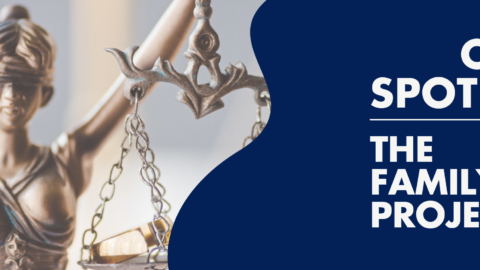
In the wake of Nick Cannon going on Twitter to rant about how he would “never…make a statement regarding my marriage,” it appears that media reports are accurate and Mariah Carey did request that he sign a confidentiality agreement about their pending divorce.
TMZ states that the couple hashed out an agreement barring Cannon from saying anything publicly about their split, but allowing Carey to speak about it on her own terms. This is likely the parties’ first step in keeping the details of their divorce private.

The desire for confidentiality in divorce proceedings can conflict with the public policy that legal proceedings must remain publicly open. The United States Supreme Court in Richmond Newspapers, Inc. v. Virginia (1980) 448 U.S. 555 held that the press and the public have the right to attend criminal trials under the First Amendment. The California Supreme Court in NBC Subsidiary (KNBC-TV), Inc. v. Superior Court (1999) 20 Cal.4th 1178 held that these rights were equally applicable to all civil proceedings. In NBC Subsidiary, KNBC wanted to attend a proceeding involving Clint Eastwood and Sondra Locke, who was suing Eastwood for fraud relating to the settlement of her palimony claim. The NBC Subsidiary holding was codified in California Rule of Court 2.550, which prohibits a court from sealing a file absent proof of extraordinary circumstances. However, the sealed records rule does not apply to “materials that are not used at trial or submitted to the court as a basis for adjudication.”
Therefore, parties in a dissolution action do have options if they wish to keep agreements related to their divorce private. Like Cannon and Carey, they may enter into binding contracts regarding disclosure. In California, they may enter into two settlement agreements: a filed agreement and an unfiled, confidential marital settlement agreement (“MSA”). The unfiled MSA is lodged with the court. The Court incorporates it into judgment by reference, merges the MSA into the judgment by ordering the parties to comply with its terms, and returns it to the parties without retaining a copy. Since the MSA is neither used at trial nor used as a basis for adjudication, an unfiled, confidential MSA does not violate the constitutional rights of the public or the press. Time will tell whether Cannon and Carey are able to reach agreements without court intervention. However, if Cannon’s Twitter statements are accurate, it is likely the public will never know the particulars of their divorce.
About the authors:
 Sarah Van Voorhis, a Certified Family Law Specialist, and Ariel Sosna are founding partners of Van Voorhis & Sosna. Follow them on Twitter at @VanVoorhisSosna
Sarah Van Voorhis, a Certified Family Law Specialist, and Ariel Sosna are founding partners of Van Voorhis & Sosna. Follow them on Twitter at @VanVoorhisSosna




0 comments on “Family Law Corner: No Cameras, Mouth Running or YouTube as Diva Carey Asks Husband for Divorce Confidentiality”